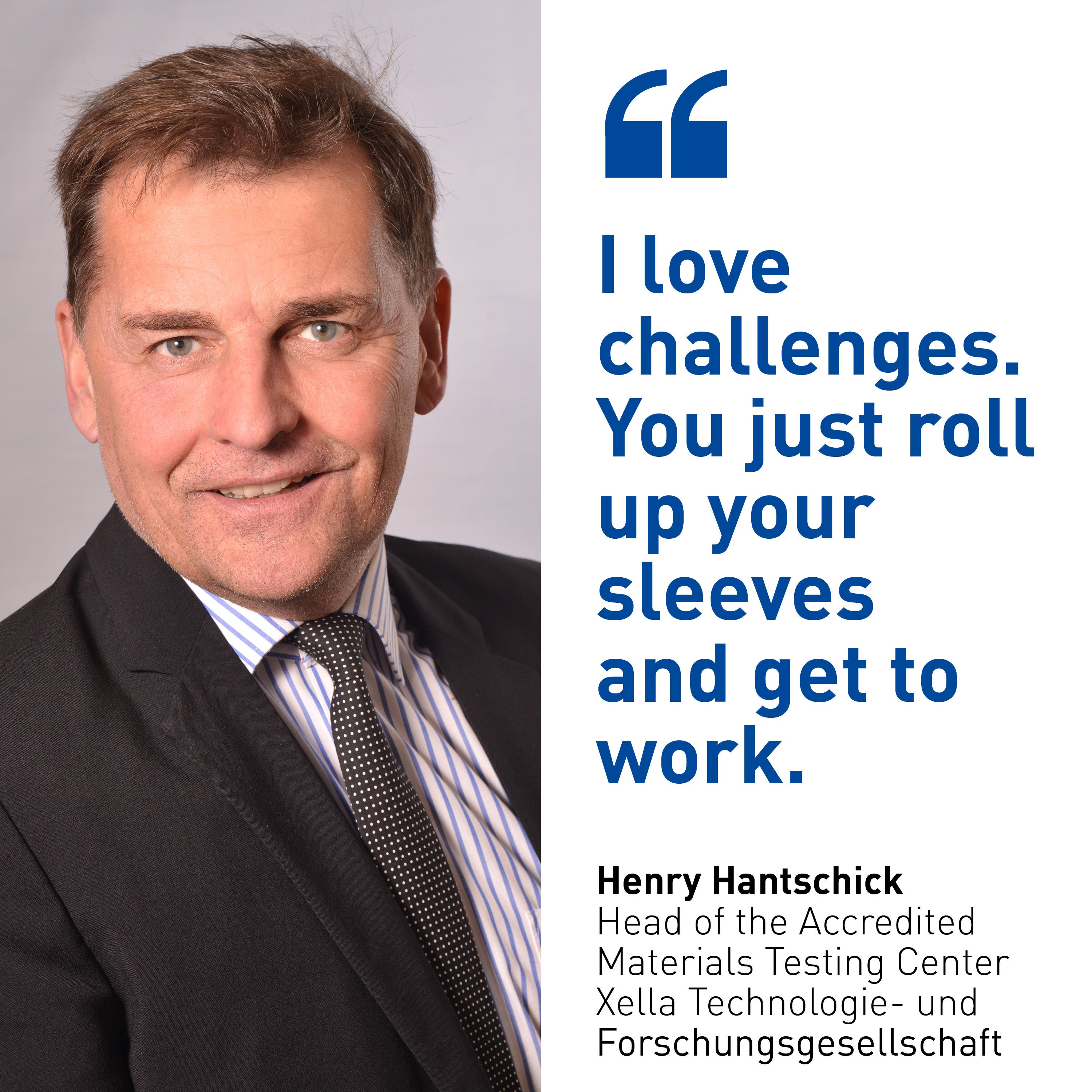What does it mean to be head of the accredited testing laboratory?
In Brück, Brandenburg, where Xella T&F is based, there are two departments: I head the accredited testing center, where we test all the building materials produced by Xella. Each plant sends samples of building materials to our laboratory, where we measure parameters such as compressive strength, dry bulk density and thermal conductivity, as well as shrinkage, freeze-thaw resistance and corrosion protection for our prefabricated components. In other words, everything that matters to the customer. Product testing also includes building material samples from large-scale and small-scale trials conducted by our department Product and Process Research as part of product development. This is how we ensure the quality of existing products and bring new products to market.
What does product testing involve?
We compare the measured values of the products with the DoP, the manufacturer's declaration of performance, based on the Construction Products Regulation of the European Parliament. We also have internal Xella limit values that are even stricter than the standard. When new products are introduced to the market, things get exciting. A very extensive and varied test program is set up to ensure safety for Xella and the customer. One highlight, for example, was the product testing during the development of the autoclaved aerated concrete (AAC) with a thermal conductivity of 0.07 W/(mK) and the tests that preceded its market launch. This product is an unique selling point (USP) for Xella.
We also respond to complaints about building products and support the sales department of Xella Germany. I love challenges. You just roll up your sleeves and get to work.
How long have you been with Xella?
I started in 1997 at Hebel in Hennersdorf, where I was project manager for product development and the construction of a new production site. We developed a product that is still produced at the Stulln plant today. In 2008, I started as Regional Manager for Production and Technology for East Germany area and as Plant Manager in Brück. In 2012, I moved to Xella T&F when the accredited test center was set up. It was a big change for me at first: I knew the production inside out, but now I had to learn and understand all the standards. Now it's routine.
What role does sustainability play in your work?
It plays a big role, even in my area. As part of the internal approval process, we review our products, for example in projects such as the recycling of AAC. In the past, we only used it to make cat litter, but now we can even put it back into the production cycle.
We also support product management, for example in the Netherlands. There is a kind of second-hand catalog in which individual wall and ceiling elements from the demolition of old autoclaved aerated concrete buildings are made available to the market again. In the past, these elements were discarded. How can we test such elements and put them back on the market when they are five or even 20 years old? It's an exciting question for us.
How did you become what you are today?
I studied in Weimar and graduated as a building materials engineer. At university, we learned a lot about building materials, physics and chemistry, as well as architecture, electrical engineering and mechanical engineering. That made us very popular on the job market. After graduating, I became the plant manager of a concrete plant in Lower Lusatia, which was supposed to be the most modern concrete factory in Europe after reunification - and I was allowed to build it. I worked there for three years until a fellow student told me about a project at Hebel. The company was looking for a building materials engineer for its top-secret "Multipor" project, so my studies paid off.
What do you do in your spare time?
I do sports and Latin dance. I started Latin dancing 20 years ago. I took a salsa class and sold my soul to the music. I also love the Baltic Sea around Warnemünde and spend my free time there with my family and our dog Pino.
